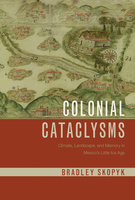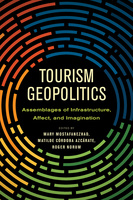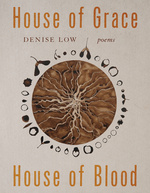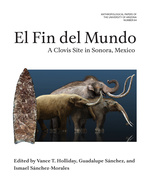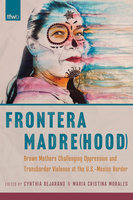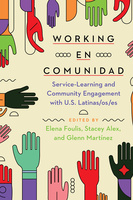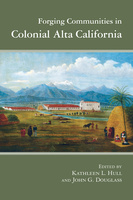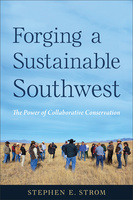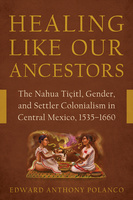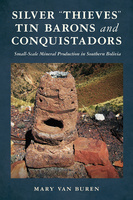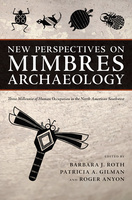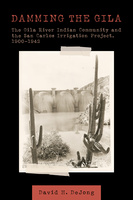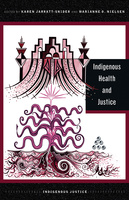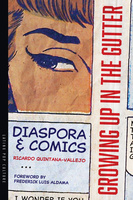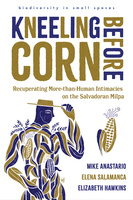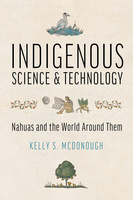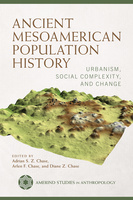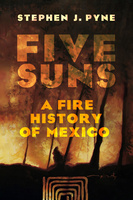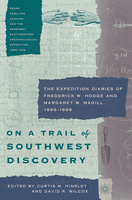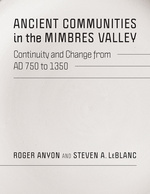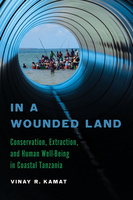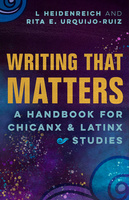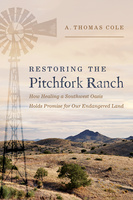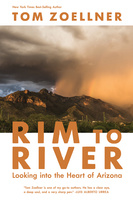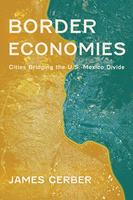The University of Arizona Press is the premier publisher of academic, regional, and literary works in the state of Arizona. They disseminate ideas and knowledge of lasting value that enrich understanding, inspire curiosity, and enlighten readers. They advance the University of Arizona’s mission by connecting scholarship and creative expression to readers worldwide.
Landscapes of Movement and Predation
Perspectives from Archaeology, History, and Anthropology
Landscapes of Movement and Predation is a global study of times and places, in the colonial and precolonial eras, where people were subject to brutality, displacement, and loss of life, liberty, livelihood, and possessions. The book provides a startling new perspective on an aspect of the past that is often overlooked: the role of violence in shaping where, how, and with whom people lived.
Colonial Cataclysms
Climate, Landscape, and Memory in Mexico's Little Ice Age
Colonial Cataclysms explores the human and environmental consequences of the global climate event called the Little Ice Age as it played out in central Mexico during the era of Spanish imperialism. It focuses on the great floods, massive soil erosion, and human adaptations to these cataclysms.
Tourism Geopolitics
Assemblages of Infrastructure, Affect, and Imagination
Tourism Geopolitics offers a unique and timely intervention into the growing significance of tourism in geopolitical life as well as the intrinsically geopolitical nature of the tourism industry.
Illegalized
Undocumented Youth Movements in the United States
House of Grace, House of Blood
Poems
Five Hundred Years of LGBTQIA+ History in Western Nicaragua
This groundbreaking book reframes five hundred years of western Nicaraguan history by giving gender and sexuality the attention they deserve. González-Rivera decenters nationalist narratives of triumphant mestizaje and argues that western Nicaragua’s LGBTQIA+ history is a profoundly Indigenous one.
Reconnaissance in Sonora
Charles D. Poston's 1854 Exploration of Mexico and the Gadsden Purchase
El Fin del Mundo
A Clovis Site in Sonora, Mexico
El Fin del Mundo: A Clovis Site in Sonora, Mexico provides a full report on the site of the first documented Clovis association with gomphotheres in North America.
Frontera Madre(hood)
Brown Mothers Challenging Oppression and Transborder Violence at the U.S.-Mexico Border
Reflecting on the concept of frontera madre(hood) as both a methodological and theoretical framework, this collection embodies the challenges and resiliency of mothering along both sides of the U.S.-Mexico border. More than thirty contributors examine how mothering is shaped by the geopolitics of border zones, which also transcends biological, sociological, or cultural and gendered tropes regarding ideas of motherhood, who can mother, and what mothering personifies.
Working en comunidad
Service-Learning and Community Engagement with U.S. Latinas/os/es
This edited volume showcases examples of service-learning practices and pedagogies for working alongside Latina/o/e communities. The contributors tackle three major themes: ethical approaches to working with Latina/o/e communities within language courses and beyond; preparing Latina/o/e students for working with their own communities in different environments; and ensuring equitable practices and building relationships that are mutually beneficial for students and community. Written by scholars, practitioners, and researchers, the collection’s six chapters offer case studies of how to carry out service-learning work that is culturally informed and provides a guide to help others do the same.
Forging Communities in Colonial Alta California
The influx of Spanish, Russian, and then American colonists into Alta California between 1769 and 1834 challenged both Native and non-Native people to reimagine communities not only in different places and spaces but also in novel forms and practices. The contributors to this volume draw on archaeological and historical archival sources to analyze the generative processes and nature of communities of belonging in the face of rapid demographic change and perceived or enforced difference.
Forging a Sustainable Southwest
The Power of Collaborative Conservation
Forging a Sustainable Southwest is the story of how diverse groups of citizens in the Southwest have worked collaboratively to develop visions for land use that harmonize ecological, economic, cultural, and community needs.
Testimonios of Care
Feminist Latina/x and Chicana/x Perspectives on Caregiving Praxis
Healing Like Our Ancestors
The Nahua Tiçitl, Gender, and Settler Colonialism in Central Mexico, 1535–1660
Accompaniment with Im/migrant Communities
Engaged Ethnography
This edited volume is a collective conversation between anthropologists, activists, students, im/migrants, and community members about accompaniment—a feminist care-based, decolonial mode of ethnographic engagement. Across the chapters, contributors engage with accompaniment with im/migrant communities in a variety of ways that challenge traditional boundaries between researcher-participant, scholar-activist, and academic-community member to explicitly address issues of power, inequality, and well-being for the communities they work with and alongside.
Silver “Thieves," Tin Barons, and Conquistadors
Small-Scale Mineral Production in Southern Bolivia
New Perspectives on Mimbres Archaeology
Three Millennia of Human Occupation in the North American Southwest
Damming the Gila
The Gila River Indian Community and the San Carlos Irrigation Project, 1900–1942
Indigenous Health and Justice
Growing Up in the Gutter
Diaspora and Comics
Growing Up in the Gutter: Diaspora & Comics is the first book-length exploration of contemporary graphic coming-of-age narratives written in the context of diasporic and immigrant communities in the United States by and for young, BIPOC, LGBTQ+, and diasporic readers. The book analyzes the complex identity formation of first- and subsequent-generation diasporic protagonists in globalized rural and urban environments and dissects the implications that marginalized formative processes have for the genre in its graphic version.
A New Deal for Navajo Weaving
Reform and Revival of Diné Textiles
Kneeling Before Corn
Recuperating More-than-Human Intimacies on the Salvadoran Milpa
Indigenous Science and Technology
Nahuas and the World Around Them
Indigenous Science and Technology focuses on how Nahuas have explored, understood, and explained the world around them in pre-invasion, colonial, and contemporary time periods.
Border Killers
Neoliberalism, Necropolitics, and Mexican Masculinity
Ancient Mesoamerican Population History
Urbanism, Social Complexity, and Change
Five Suns
A Fire History of Mexico
We Stay the Same
Subsistence, Logging, and Enduring Hopes for Development in Papua New Guinea
On a Trail of Southwest Discovery
The Expedition Diaries of Frederick W. Hodge and Margaret W. Magill, 1886–1888
Ancient Communities in the Mimbres Valley
Continuity and Change from AD 750 to 1350
In a Wounded Land
Conservation, Extraction, and Human Well-Being in Coastal Tanzania
Focusing on the human element of marine conservation and the extractive industry in Tanzania, this volume illuminates what happens when impoverished people living in underdeveloped regions of Africa are suddenly subjected to state-directed conservation and natural resource extraction projects. Drawing on ethnographically rich case studies and vignettes, the book documents the impacts of these projects on local populations and their responses to these projects over a ten-year period.
Writing that Matters
A Handbook for Chicanx and Latinx Studies
Mujeres de Maiz en Movimiento
Spiritual Artivism, Healing Justice, and Feminist Praxis
Coastal Foragers of the Gran Desierto
Investigations of Prehistoric Shell Middens along the Northern Sonoran Coast
Resistance and Abolition in the Borderlands
Confronting Trump's Reign of Terror
The Space Age Generation
Lives and Lessons from the Golden Age of Solar System Exploration
Restoring the Pitchfork Ranch
How Healing a Southwest Oasis Holds Promise for Our Endangered Land
Restoring the Pitchfork Ranch tells the story of a decades-long habitat restoration project in southwestern New Mexico. Rancher-owner A. Thomas Cole explains what inspired him and his wife, Lucinda, to turn their retirement into years dedicated to hard work and renewal on 11,300 acres of grass- and wetlands. The Pitchfork Ranch is an inspiring promise for the future in the face of crippling climate change.



